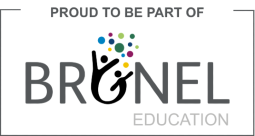About Melksham House school
Useful Information
Welcome
Melksham House is a specialist educational provision that will provide education for children and young people from the age of 4-18 years with complex social, emotional and/or mental health/medical needs which have prevented them from successfully engaging in or attending school. We are situated in the heart of Melksham, adjacent to the
‘community campus’.
Our Vision
Our vision is clear ‘no barriers, only potential’. Our vision will be underpinned by the application of a consistent model and approach. Building trust with children and young people is a core component of our model. Without trust, the child or young person won't feel safe, which will in turn remove their opportunities to engage positively and build emotional
resilience. Without this secure base the child or young person will not learn, know or remember, limiting progress through the planned curriculum. Our core model of support will ensure the child or young person will build trust, feel safe and subsequently learn.
Opening and Transition
We are working with Wiltshire Council, The Department for Education and Ofsted to open Melksham House School so that it can welcome its first children and young people as soon as possible in 2025. We are busy recruiting the team of specialist staff, preparing and equipping the building in readiness for opening. We anticipate that we will be open for informal visits very soon and at this point hope that all the necessary processes for formal opening will be complete shortly so that young people can meet the team and we can transition them into the school during the Summer Terms of 2025.
Our Currciulum
At Melksham House we offer 3 curriculum pathways EYFS - Our EYFS curriculum is accessible, engaging and effective for our SEMH cohort. Early intervention is the key and we will ensure we a positive start to Melksham House life by modelling and embedding our focus of ‘trust, safety and learning’. We provide a person-centred approach to learning
building on the CYPs interest and successes.
Primary - Primary CYP can access the breadth of the Primary National Curriculum. Teachers personalise, adapt and focus schemes of learning to the individual needs of the CYP. Reading and phonics are prioritised.
Secondary EBSA - Secondary pupils can access the breadth of the secondary national curriculum. However, how they access the curriculum will be dependent on the CYP presenting need. This cohort of pupils will benefit from access to teachers and a pupil coach who will work with them on an outreach model to create a PLP (Personalised learning
plan) that provides the emotional literacy support to help them manage their mental health needs. It is expected that pupil timetables move from an outreach model to a hybrid model of outreach, online learning and school site education with the long-term goal that the pupil's attend full time education on the site of the school.
Class Structures
Early Years Foundation Stage
EYFS pupils benefit from small group approach with access to consistent members of staff. This model supports the vision of trust, safety, learning and allows the children and young people to develop a sense of belonging. Transitions will be reduced to further reduce anxiety. We understanding that many of the children and young people may find social interaction and managing relationships challenging and therefore are able to scale up or down class sizes.
Secondary children and young people
Personalisation is the cornerstone of our class structures for Secondary children and young people; the curriculum is bespoke and programmes are crafted to meet individual needs which demands a totally flexible and adaptable approach to teaching and learning from all involved. We work flexibly in the home, online, in the local community and on school site.
Staff Development
Equipping our staff with the knowledge and skills to be able to meet the presenting needs of our children and young people is a priority. All staff receive training in supporting mental health e.g. 12-hour Mental Health First Aid qualification as well as SEND specific training pertinent to the range of needs for which we cater; EBSA, autism, ADHD, pupils with attachment and trauma difficulties. ELSA (Emotional Literacy Support Assistant) will be core training for teaching support staff. Teaching staff can access SEND and subject specific qualifications as well National Professional Qualifications (NPQ) as part of their development. All staff are encouraged to seek and participate in additional training beyond the provision’s professional development program.

